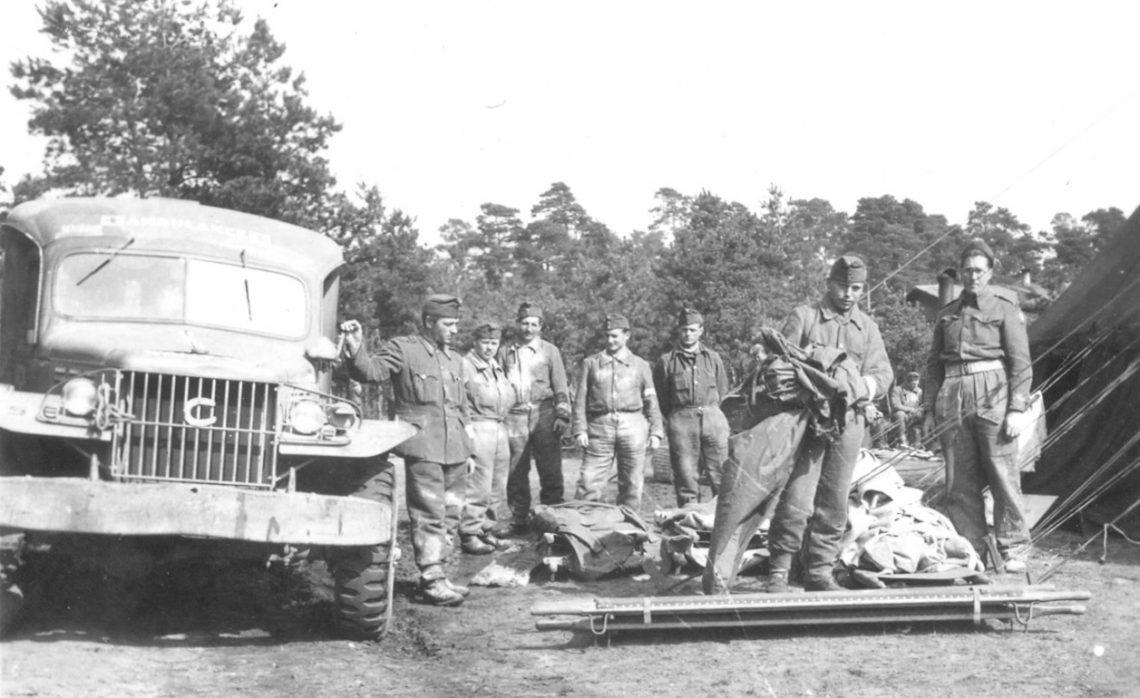-
American Field Service
Shortly after liberation, a contingent of around seventy* American Field Service (AFS) ambulance drivers from C and D Platoons of the 567 Company (Coy) was called in to assist in what became a seven-week mission offering aid to the survivors of the camp. Ambulance drivers from the D Platoon under the command of Lieutenant Murray drove to Lübeck on the Baltic to retrieve 130 German nurses to assist with the evacuation of the camp. A section of the C Platoon under the command of W.J. Bell volunteered to assist with stretcher-bearing details and distribution of meals to the survivors. *(76) Ref. AFS deeply honors the seventy AFS Ambulance Drivers…
-
Richard Elberfeld – American Field Service
My father, Richard Bradford Elberfeld, was a member of the American Field Service, attached to a British unit who liberated Bergen Belsen. 11,332 total views
-
Conrad Wilson (AFS) Letter
Conrad Wilson, wrote, including a few rare recollections he wrote about his role as an ambulance driver with the American Field Service searching for survivors when the British Army, with whom he was serving, liberated the camp. This was a part of Conrad’s life that he suppressed for decades after the War, rarely if ever speaking of it. That silence changed, briefly at least, in 1969, when Bill wrote to Dad asking about his role in searching for survivors in the Camp—something that Bill’s father, Dave, had mentioned on occasion but said that his brother never talked about it. 13,418 total views
-
Conrad Wilson – AFS
My grandfather, Conrad Wilson, was a Quaker and a conscientious objector. Although his pacifism steered him away from picking up a gun, his conscience told him he should contribute in some way to the war effort. AFS gave him the outlet he had been looking for. 13,968 total views
-
Craig P. Gilbert (AFS)
Craig P. Gilbert was born on August 13, 1925 in Manhattan. He graduated from Phillips Academy in Andover, Massachusetts in 1943 and joined the American Field Service near the end of World War II. 11,952 total views
-
Alan Willoughby, AFS
Alan served in WWII as an ambulance driver for the British army all across Europe by way of the American Field Service. He was there for the liberation of the Bergen-Belsen Concentration Camp. He loved his country and was proud of everything he could do to support it. 12,271 total views

